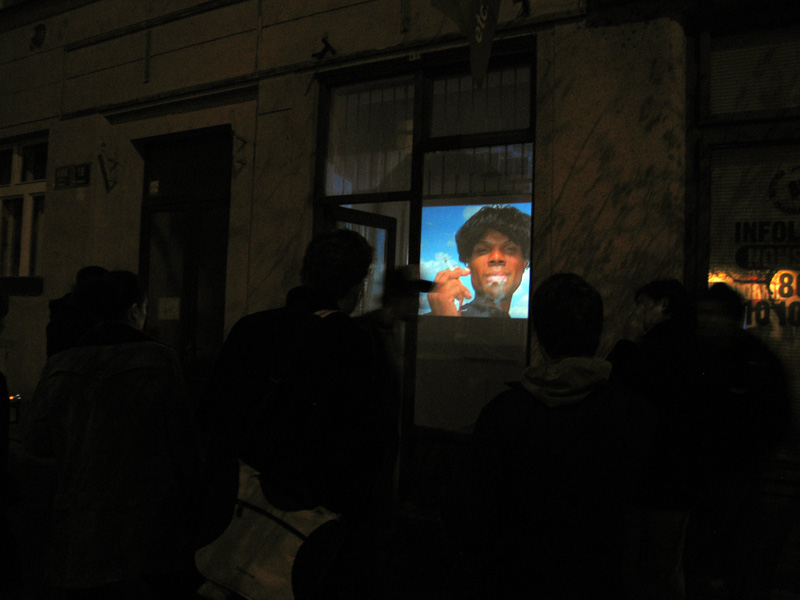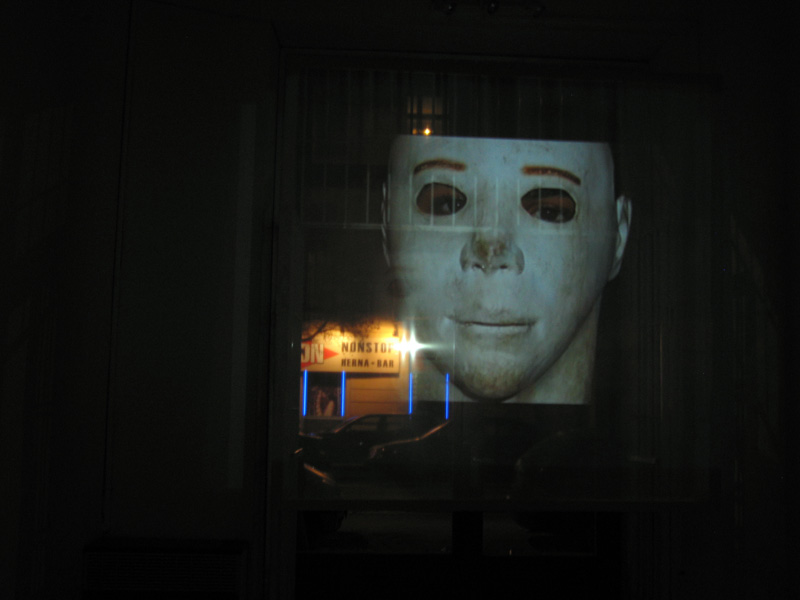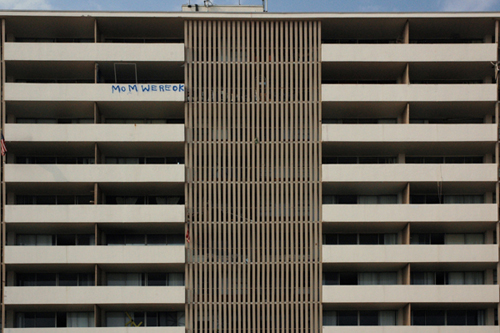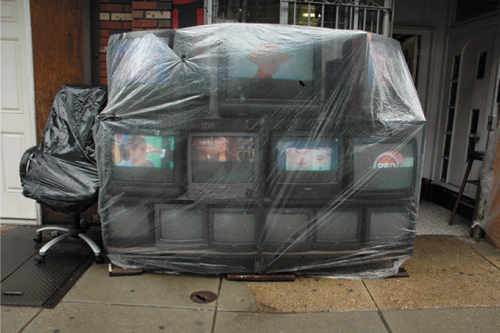

March 2007
It is unnecessary—even impossible—to discuss Zoe Strauss' work and identity separately. She is an artist, a documentarian, an activist, a humanitarian, and a neighbor; these roles inform her art and are also affected by it. In late 2005 Strauss travelled to the Gulf Coast to volunteer in the aftermath of Hurricane Katrina. Not only did she document the human suffering that was prevalent in the vicinity through a series of hauntingly descriptive photographs, but she also gave her time and resources to those living in desperate circumstances. More recently, Strauss has found herself embroiled in a legal battle over a film that was made about her artistic practice.
As part of an educational summer project, a group of eight high school students were selected by the Philadelphia Institute of Contemporary Art to help make a documentary about her. Presently the release of the film is being contested due to the students' exposure to the graphic nature of Strauss' photographs.
Strauss' involvement with pressing social issues such as the US government's lack of expedient relief for hurricane victims, inner-city poverty, drug abuse, violence, her own freedom of speech, and a student's right to artistic expression comprise a major component of her artwork. Such issues are addressed explicitly in her photographs, as well as in her online journal (www.zoestrauss.blogspot.com). Strauss' process of capturing the contradictions of everyday life through a camera lens is detailed in the extensive entries on her blog. It is clear that she has a genuine interest in her subjects for their photogenic qualities and the universality of their situations.
Strauss' art is constantly a work in progress.
This exhibition, which contains printed and projected imagery, is the result of her shooting images over the course of the past year for her annual public display. A slideshow is accompanied by photocopied prints similar to the ones exhibited under I-95 in Philadelphia every May. She plans to continue the I-95 project through the rest of her third decade and when she turns 40 she will start a large-scale public project in the form of billboards.
The photographs included in I-95 Works in Progress at Etc. Galerie attest to Strauss' uncanny ability to ask strangers if she can take their picture, as well as the spontaneous and stirring results.
Christina Vassalo, 2007




© 2007, etc. galerie
Kateřinská 20, Praha 2, Czech Republic / info@etcgalerie.cz
